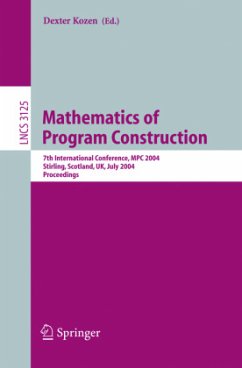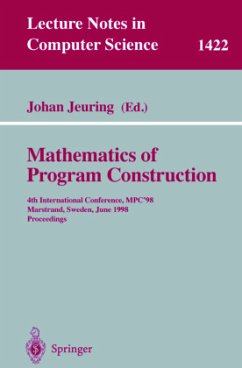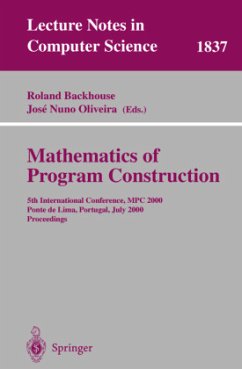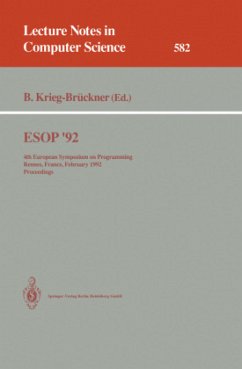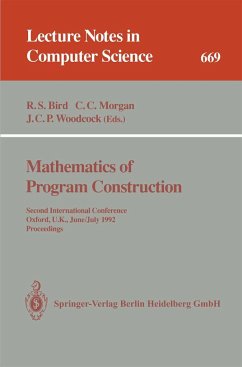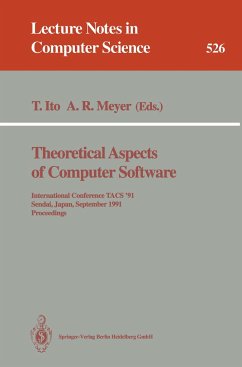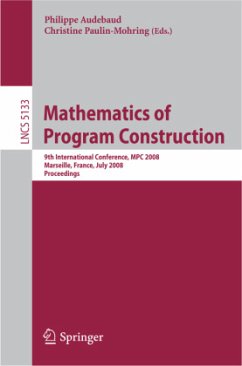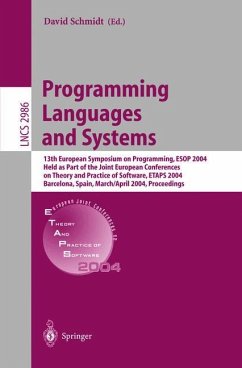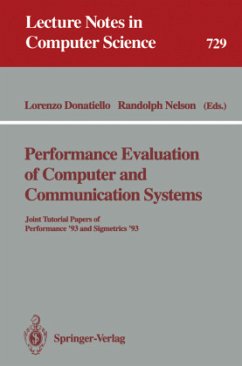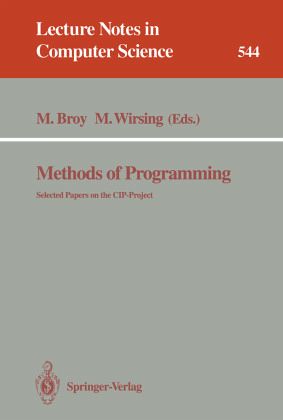
Methods of Programming
Selected Papers on the CIP-Project
Mitarbeit: Broy, Manfred; Wirsing, Martin
Versandkostenfrei!
Versandfertig in 1-2 Wochen
39,99 €
inkl. MwSt.

PAYBACK Punkte
20 °P sammeln!
The systematic development of software systems is a centraltask of computing science. A software system is the resultof putting together knowledge about the application, therequirements and the structures of computing science.Under the heading CIP (Computer-aided Intuition-guidedProgramming), a group of researchers led by Prof. F.L. Bauerand Prof. K. Samelson started work in 1975 in the directionof formal program specification, transformationalprogramming, and tool supportfor program development.The collection of papers in this volume presents examples ofa formal approach to programming langua...
The systematic development of software systems is a centraltask of computing science. A software system is the resultof putting together knowledge about the application, therequirements and the structures of computing science.Under the heading CIP (Computer-aided Intuition-guidedProgramming), a group of researchers led by Prof. F.L. Bauerand Prof. K. Samelson started work in 1975 in the directionof formal program specification, transformationalprogramming, and tool supportfor program development.The collection of papers in this volume presents examples ofa formal approach to programming language concepts andprogram development based on algebraic specifications andprogram transformations. Examples are also presented ofevolutions and modificationsof the original ideas of theCIP project. The topics range from descriptionsof theprogram development process to derivations of algorithmsfrom specifications.The volume is dedicated to Prof. F.L. Bauer.





